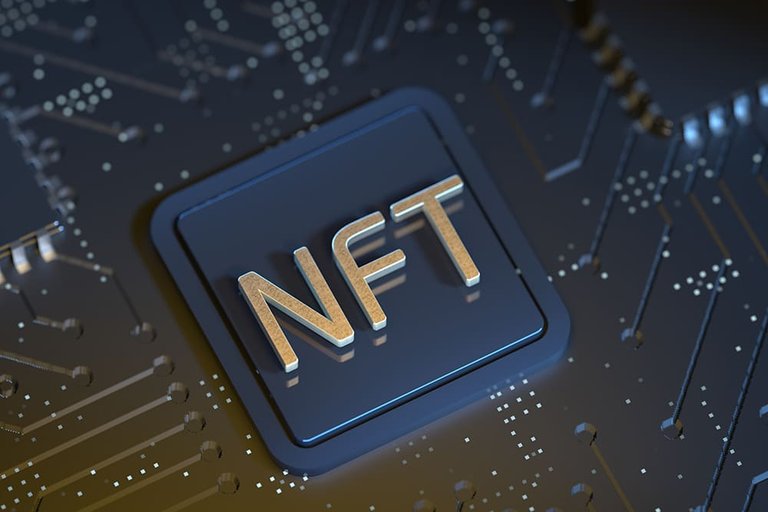Property Rights, Free Exchange, and Digital Escapism in the World of NFTs
The Free Market World of NFTs
I will be the first to admit that I knew relatively nothing in terms of NFTs or the Metaverse before this week's lecture, however, after gaining a better understanding of the broader topic through this lecture and some research I am left with mixed feelings regarding this world. Although I may definitely still lack some understanding of the topic, my qualms with NFTs do not lie within the free market principles that they work to promote. I deeply enjoy the fact that through NFTs creators can work to set their own values for items with no input from third parties allowing the consumer and creator to be the ones negotiating the market value instead of relying on regulation. I think this is what has so quickly led to the development of innovation within this world as it is relatively new yet already highly evolved showing the true power of unregulated competition in boosting innovation. Throughout the entire lecture I was directly reminded of the “freedom based principals” which were discussed in our intro lecture for this class as this topic directly applied to so many of them most specifically: Property rights, Free exchange, Competitive markets, and Specialization of labor. Not only does the blockchain allow for the full transparency in regards to transactions but it also allows for the protection of personal property as you can follow the direct transfers of items from one individual or manufacturer to another allowing for a complete digital pathway of the item making it much simpler to prove true ownership of the item. Not only does this prevent potential theft but it also makes it much more difficult to create socialist regulations in this realm as if the item is directly tied to you then how could it possibly become a governmentally owned and regulated resource for distribution. Furthermore, where once artists might spend their whole life working to be appreciated for their craft which traditionally was only displayed in museums, offices, and wealthy homes they now have a whole new digital market space to display, sell, and commission their art allowing for greater specialization of labor on a global scale. This creates more opportunities for these skills to become employable helping to stabilize the economy as these new job opportunities will lead to further innovation that will create even more job opportunities for other skill sets. Lastly, through this emerging market which has not yet been hindered by copious amounts of regulation artists, creatives, and innovators can offer their ideas or items in a competitive space and work to perfect their niche through responding to demand which only furthers the ability of the metaverse to evolve. As the physical market becomes continuously saturated with regulation it will be interesting to watch the evolution of the digital NFT space and how it contributes to the global economy.
Digital Escapism
Just as the Bulletin of the Atomic Scientists moved the hands of the doomsday clock one second closer to midnight in 2025 I fear our world is truly turning down the path of no return. As discussed above I had a personal push back against certain concepts discussed in this lecture, most specifically pertaining to the increasing reliance on the metaverse for several social aspects of our world. I may take an old school approach to this concept and it might simply stem from a lack of digital knowledge however, I personally found it a bit concerning to hear, “in real life,” used so often in a lecture. I understand the fact that our world is becoming increasingly more digitized and over time we will create more and more virtual reality settings however, it never occurred to me that we would also eventually have to specify whether we met someone or attended an event “in real life” or in the metaverse. I understand the appeal and allure of moving towards a digital world and making it a point to become one of the first members of society to truly take part in this new life before the rest of the world moves into the metaverse, however I can't help but be concerned with the push for intentionally shifting our focus away from the physical world towards a fully fabricated one. Understandably this is simply the beginning of our understanding and creation of the Metaverse however, as we begin this new “space race” for digital property and power I worry we will in turn leave the problems of the present behind. Although we have made great progress regarding the globalization and modernization of our society there are still a multitude of conflicts that need to be solved “in real life,” before abandoning the present for an alternate reality. I fear that as technology progresses and continues to make current issues facing our society more complicated to solve that we will move towards the Metaverse abandoning the “real life” we are all actually living and with it the unresolved issues most of the world is still facing. Just as discussed last week in the Poverty Inc. documentary, a large portion of our world is greatly suffering due to their lack of access to economies of scale and global markets. These same societies will only continue to suffer as we move on to participating in and developing the Metaverse to fit our best interests without ever including these societies forcing them to once more become a late adaptor and suffer economically. Where advanced economies now have access to a whole new form of wealth in another world, these other less developed economies are still suffering from a lack of wealth in present times and could potentially be abandoned.
